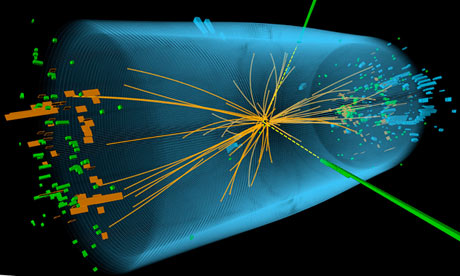Today may seem like just an average March day, but to the science community, it represents the celebrations of a critical number, a world-renowned scientist, and today the confirmation of a particle that is responsible for giving matter its mass.
Depending on how people write their dates, Pi(e) Day could be January 3 at 4:19 or today at 1:59. Either way, the day commemorates pi, its infinite digits, and sometimes the dessert that shares its name. Pi Day has been unofficially celebrated since 1988, and it has been an official holiday since 2009 to spark interest in math and science. My middle school made an all-day affair of the day in eighth grade, and the school sponsored art projects, digit memorization competition (the winner gave 238 digits), and a pie tasting event.
In a more serious light, March 14 is also known as the birthday of Albert Einstein. Though he is known memetically for his crazy hair and tongue, Einstein made significant contributions to the field of physics through his theories in special relativity, the photoelectric effect, and the mass-energy equivalence (e=mc2). The German-born scientist would have turned 134 today, but portions of his brain have been studied since his death in 1955 for possible insight into his incredible mental capacity.

Finally, scientists at CERN in Geneva, Switzerland, have essentially confirmed the discovery of the Higgs boson. The idea of the particle was proposed in 1994, but after trillions of proton collisions in the 17-mile-long Large Hadron Collider, scientists observed a particle last July that behaved how the Higgs boson was predicted to behave. The confirmed discovery helps to explain the theories behind how matter has mass and, more specifically, how the universe was formed from nothing.
Whether you celebrate today with a piece of Boston cream or particle physics, March 14 is a day of the best science and math have to offer.
(And I promise, the fact that the post was 314 words not including this sentence was a fortunate happenstance.)






